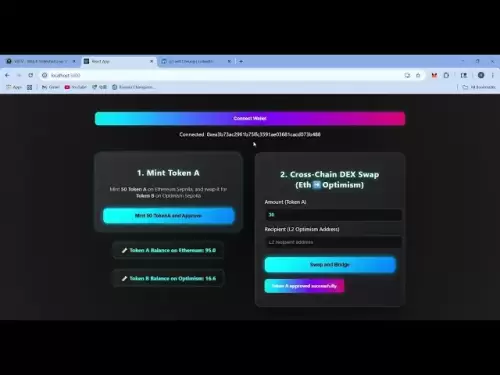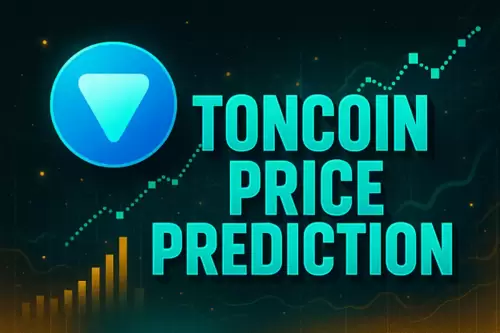 |
|
 |
|
 |
|
 |
|
 |
|
 |
|
 |
|
 |
|
 |
|
 |
|
 |
|
 |
|
 |
|
 |
|
 |
|
Cryptocurrency News Articles
Tinian Preempts Wyoming, Introducing the First Government-Backed Stablecoin in the US
May 17, 2025 at 02:47 am
The Municipality of Tinian and Aguiguan of the Northern Mariana Islands has boldly and significantly overruled a gubernatorial veto to approve a measure

The Municipality of Tinian and Aguiguan, part of the Northern Mariana Islands, has overruled a gubernatorial veto and approved a measure to enable the creation of a government-backed stablecoin, named the Marianas US Dollar (MUSD).
This follows Governor Arnold Palacios' rejection of the measure in April, despite its unanimous passage in March. Palacios expressed concerns about the legal basis of the bill and potential conflicts with federal and Commonwealth financial regulations. Nevertheless, both chambers of the Commonwealth Legislature went on to vote in May to overturn the veto.
The House voted 14-2 on May 15, while the Senate's vote on May 9 ended 7-1 in favor of overturning the governor's decision.
The approved legislation grants Tinian the authority to issue a stablecoin pegged 1:1 to the US dollar and backed by US dollar balances and Treasury bills held by the Tinian Municipal Treasury. The coin will be deployed on the eCash blockchain, a distributed system derived from Bitcoin Cash ABC, known for swift and cost-effective transactions.
Marianas Rai Corporation, a Tinian-based technology firm, has been named as the exclusive partner for developing and maintaining the MUSD infrastructure. Further details regarding the issuing and implementation procedures are set to be discussed at a public meeting scheduled for May 19.
The Northern Mariana Islands appear to be an unexpected pioneer in digital finance, with the local government framing the stablecoin project as part of a broader economic revitalization strategy.
Aiming to attract global players to Tinian's digital economy, the laws also include provisions for issuing internet casino licenses.
"This is more than just a blockchain experiment," said Justin Ngiracheluch, a development economist specializing in the Pacific Islands. "It's a strategic move by Tinian to quickly outmaneuver traditional financial constraints by creating programmable money within a closely regulated framework."
The spotlight has also fallen on Wyoming, which enacted legislation earlier this year to allow for a state-issued stablecoin, the Wyoming Stable Token (WYST), fully backed by USD and government securities.
Unlike Tinian's localized issuing approach, which more closely aligns with standard public financial oversight models, Wyoming's initiative is governed by a state-level commission.
While Wyoming boasts stronger banking infrastructure and regulatory capacity, Tinian might be the first to launch. If MUSD begins circulation before July, it will beat Wyoming to market, potentially setting a national standard for local government-led digital money printing.
The action has also caught the attention of professional in the field.
“This is the clearest signal yet that U.S. jurisdictions are prepared to challenge the status quo,” said Amanda Clarke, a regulatory fellow at the Digital Dollar Institute. “The question now is whether the federal government will support, ignore, or intervene in these state-level initiatives to create new types of money.”
But others caution that the technical and compliance challenges are still significant.
“It's not as simple as issuing a stablecoin, but rather how trust, liquidity and stability can be sustained over time in a common good service to be provided by the municipality to the people of Tinian,” said Dr. Luis Manalo, a blockchain researcher.
Especially as federal lawmakers consider a national framework for stablecoins, the converging strategies of Tinian and Wyoming could yet influence the future of US digital currency legislation.
Disclaimer:info@kdj.com
The information provided is not trading advice. kdj.com does not assume any responsibility for any investments made based on the information provided in this article. Cryptocurrencies are highly volatile and it is highly recommended that you invest with caution after thorough research!
If you believe that the content used on this website infringes your copyright, please contact us immediately (info@kdj.com) and we will delete it promptly.





























































